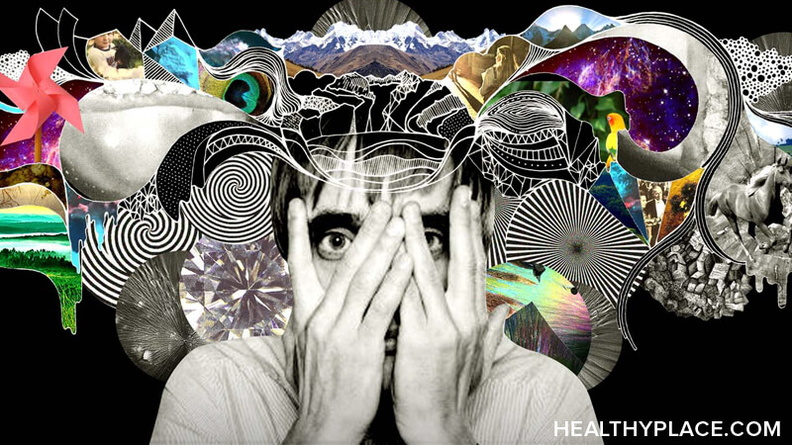Betrayed by Bipolar Disorder

"Take a look inside my Bipolar Brain and you'll see crazy," proclaims Breaking Bipolar blog author, Natasha Tracy. Natasha is diagnosed with bipolar II, ultra-rapid cycling and has been in treatment for over a decade. Unfortunately, even after trying numerous bipolar treatments, Natasha has received little relief.
 On this week's HealthyPlace Mental Health Radio Show, Natasha discusses the emotional aspects of bipolar disorder, providing a view of what it's like inside her bipolar brain, how it impacts her day-to-day life, and how she manages to survive bipolar disorder.
On this week's HealthyPlace Mental Health Radio Show, Natasha discusses the emotional aspects of bipolar disorder, providing a view of what it's like inside her bipolar brain, how it impacts her day-to-day life, and how she manages to survive bipolar disorder.
Unfortunately, the interview with Natasha Tracy mentioned above is no longer available. However, our bipolar disorder YouTube playlist features Ms. Tracy. She has a lot to say about bipolar disorder, and it's worth your time to listen.
For more information about the symptoms, causes, and treatment of bipolar disorder, visit the HealthyPlace Bipolar Disorder Community.
APA Reference
Gray, H.
(2010, October 11). Betrayed by Bipolar Disorder, HealthyPlace. Retrieved
on 2026, January 16 from https://www.healthyplace.com/blogs/radioshowblog/2010/10/betrayed-by-bipolar-disorder
Author: Holly Gray
I was just browsing for relevant blog posts for my project research when I came across yours. Thanks for the useful information!
My daughter has admitted that she has DID, but now she denies it. She has a therapist who may not believe that DID is real. How can I get this program sent to her? She is on Facebook and she has email, but she is having ECT sessions these few weeks. How does ECT affect DID?
Hi Arline,
There is a button on the multi-player on the Radio Show Homepage labeled "Share" next to a little envelope graphic. It's also on all the single players in each blog. If you click that button, you'll receive options for sharing the shows via email, facebook, twitter, etc.
As far as ECT for DID, as a consumer and not a medical professional, I have to say I don't know how ECT would affect someone with DID. As someone with Dissociative Identity Disorder, I have to say I don't imagine the effects would be that helpful. DID is a trauma born disorder. As such, it requires specialized care and treatment from an experienced trauma specialist, preferably a clinician who has experience diagnosing and treating DID.
You can read more about the symptoms, causes, and treatments of dissociative disorders, including DID, by visiting our Dissociative Disorders Homepage: http://www.healthyplace.com/abuse/dissociative-identity-disorder/types-symptoms-causes-tr…
I also write about Dissociative Identity Disorder on my blog here at HealthyPlace, Dissociative Living: http://www.healthyplace.com/blogs/dissociativeliving/
It can be frustrating finding treatment for Dissociative Identity Disorder, but there are skilled clinicians with the experience necessary to help your daughter. The International Society for the Study of Trauma and Dissociation has a Find a Therapist feature on their website that I highly recommend. It can take time and persistence to find the right treatment - but help is out there.